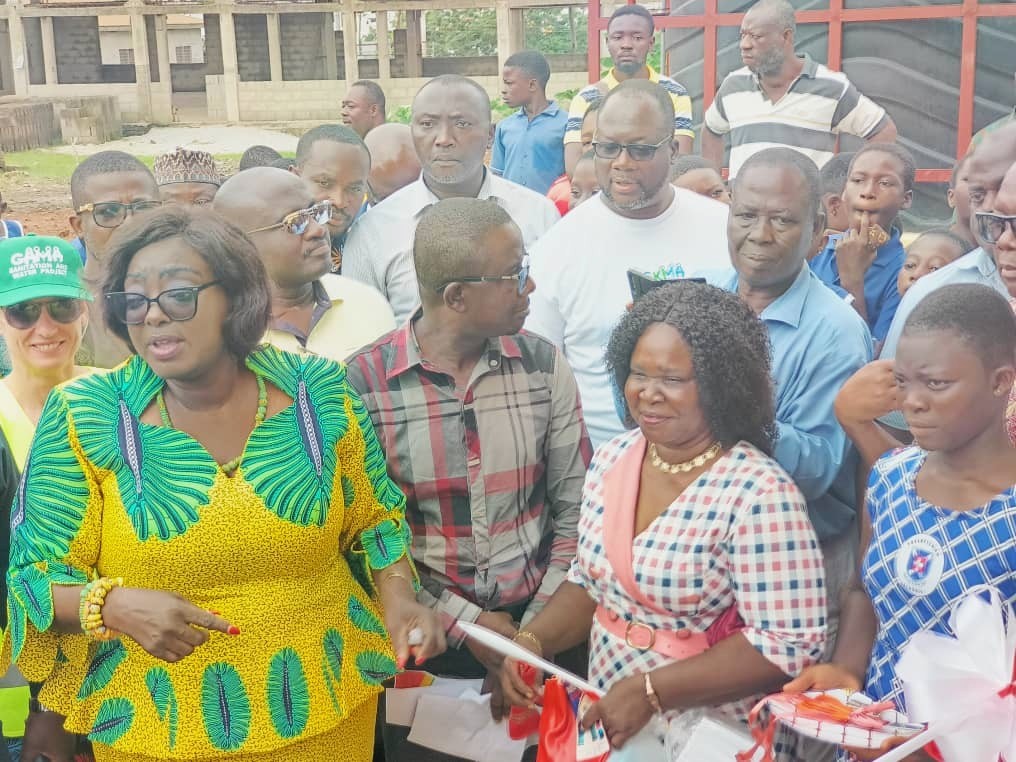By Florence Afriyie Mensah
Kumasi, Oct. 13, GNA – The Greater Kumasi Metropolitan Area (GKMA) Sanitation and Water Project (SWP), as part of its project component, has handed over 38 institutional sanitation facilities to schools and health facilities in the Ashanti Region.
The beneficiaries included the Kumasi Metropolitan Assembly, Kwadaso, Old Tafo, Ejisu, Oforikrom, Suame, Asokore-Mampong and Asokwa municipal assemblies.
The facilities were 11-seater gender and disability friendly toilets with changing rooms for girls, storage systems, and constant water supply.
Dr Freda Prempeh, the Minister of Sanitation and Water Resources, during the handing over, said the Government prioritised clean and sound environment for every citizen, to ensure the country was judged among the cleanest countries in Africa.
She said it had been a dent on Ghana’s image when access to decent toilets facilities in schools was a challenge. As of 2016, less than 70 per cent of basic schools had access to toilets during school hours.
“With support from the World Bank and through the Greater Accra Metropolitan Area (GAMA) SWP, the Government began a process of reversing this situation by providing 406 modern toilets to 260 schools in the Greater Accra Region among other WASH interventions.
“With the project adjudged the most impactful urban project of the decade, the World Bank willingly agreed to a government proposal to extend it beyond the 2020 deadline to focus on the GKMA,” Dr Prempeh said.

Since 2021, the GKMA-SWP had continued to pursue an agenda to provide 129 modern toilets to about 90 selected schools and healthcare facilities in the Ashanti Region, to provide relief for about 200,000 school children, teachers, patients, and other workers.
She called for good maintenance of the facility because if they failed to function, Ghana risked losing out on all the other components of the GKMA Project, which included 30,000 household toilets, extension of piped water supply to 5,000 households, and capacity development for sanitation and water supply institutions.
Ms Anna Cestari, World Bank Practice Manager for Water in West and Central Africa, said the Bank was committed to supporting the Government of Ghana to make progress towards the achievement of the Sustainable Development Goals (SDGs) Six, which highlighted access to potable water and sanitation.
Providing reliable access to water and sanitation was essential for the well-being of the citizens and the achievement of human capital development.
GNA